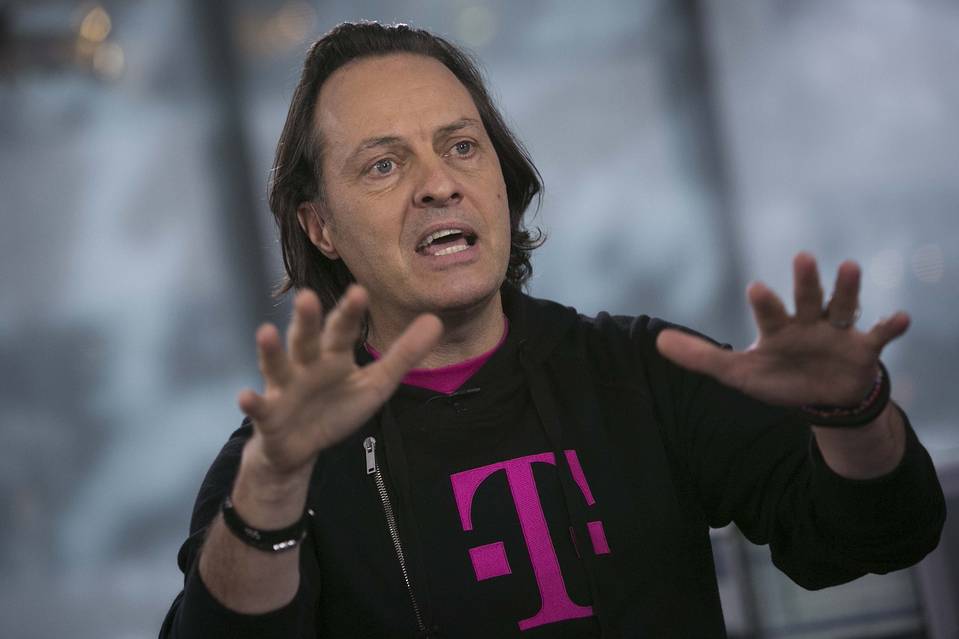As usual, the net neutrality eccentrics have managed to upset themselves over the wrong things.
Their latest bête noire is T-Mobile’s John Legere, and not for his excessive reliance on four-letter words. His crime is marketing a new offer to his wireless subscribers: unlimited consumption of Netflix, Hulu and other compliant video services via the cellular network, free of data caps and usage penalties.
But that sounds like a “fast lane”—it treats some data differently than other data and is sacrilege to the net neuties. Never mind that T-Mobile affords the same privilege to any video provider willing to comply with its technical requirements. Never mind that T-Mobile here functions less as a gatekeeper than as the supplier of an incentive for video operators to make unlimited video manageable on T-Mobile’s capacity-constrained cellular network. This means, mainly, tagging the data so the network can recognize it. It also means allowing a reduced resolution that Mr. Legere calls “DVD quality” but is less crystalline than customers are used to getting over a wired broadband connection.
 Opinion Journal Video
Opinion Journal Video
Alas, the net-neut empire of unreason is growing. A New York Times editorial worries that T-Mobile’s unlimited video offer “will inappropriately distort how consumers use the Internet.”
The poor, deranged dears should welcome T-Mobile’s experiment. It’s the opening wedge of a wireless challenge to cable broadband. Video delivered in 480p may not be as glorious as 1080p, but will be perfectly watchable on a tablet or smartphone. Here’s betting Mr. Legere’s offer will be attractive to households on a budget as well as the young and footloose and others who prefer not to pay a huge second bill to get broadband at home.
And down the road, more such competition will be coming as other wireless operators adapt to the video deluge. That is, to the degree that the Obama administration’s shrouding of the Internet in politicized utility regulation permits.
T-Mobile hasn’t spelled out all the steps required to make sure its cellular network can handle the load. Often lost is that while entertainment video is more demanding than a static Web page or email, it’s less demanding than voice—you can’t buffer in advance a phone conversation.
Here is a perfect example of why the net-neutrality ideal, which holds that all ones and zeros need to flow in nondiscriminatory fashion through a broadband pipe, is a counterproductive ideological fetish.
The glory of digital networks is their ability to deliver an infinite variety of services over a single infrastructure, embedding intelligence everywhere. The electric company can’t differentiate between an electron that goes to power a respirator and one that goes to power a hair dryer. The water company can’t differentiate between a molecule being used to put out a fire at an orphanage and one being used to wash the cat.
The fetishists have fallen in love with an abstraction in preference to reality (which is what fetishists do). On the advice of bloggers who fill their heads with misinformation, they have lately been sticking their heads in the oven over a second market development. This is Comcast’s recent trial of usage-based pricing in a handful of localities.
The problem with Comcast’s experiment is that more broadband providers aren’t doing the same. Net neuties complain that usage charges are a backdoor way to jack up prices. But the way to jack up prices is to jack up prices. A variant accusation is that Comcast is using overage charges to punish customers for abandoning cable TV for Netflix. But only about half your cable bill goes to pay Hollywood for TV content. The rest pays for system maintenance—a cost that users will have to bear one way or another.
In this real world, a more efficient pricing system, one that maximizes revenues by giving people a range of prices at which they can participate, stands to be a boon to all users. If a light user can get a better deal, more light users will sign up and more revenue overall will be generated to support a common infrastructure. This is called price discrimination—in which discrimination is not a synonym for bad. Airlines follow the same logic.
A touch disgraceful is that certain full-time cheerleaders who have spent the past 20 years blogging about the Internet still don’t bother to understand anything about pricing or the deadweight loss that comes from charging different users, with different needs and appetites, the same price for a service.
What they should care about is competition, the force that ensures experiments like T-Mobile’s and Comcast’s will end up working for consumers. Happily, T-Mobile’s video offering (which the company calls “Binge On”) is exactly the reason we can expect a more competitive future—the convergence of fixed and mobile. That is, pending the Obama administration’s willingness not to get in the way.
[“source-wsj”]




 Opinion Journal Video
Opinion Journal Video
